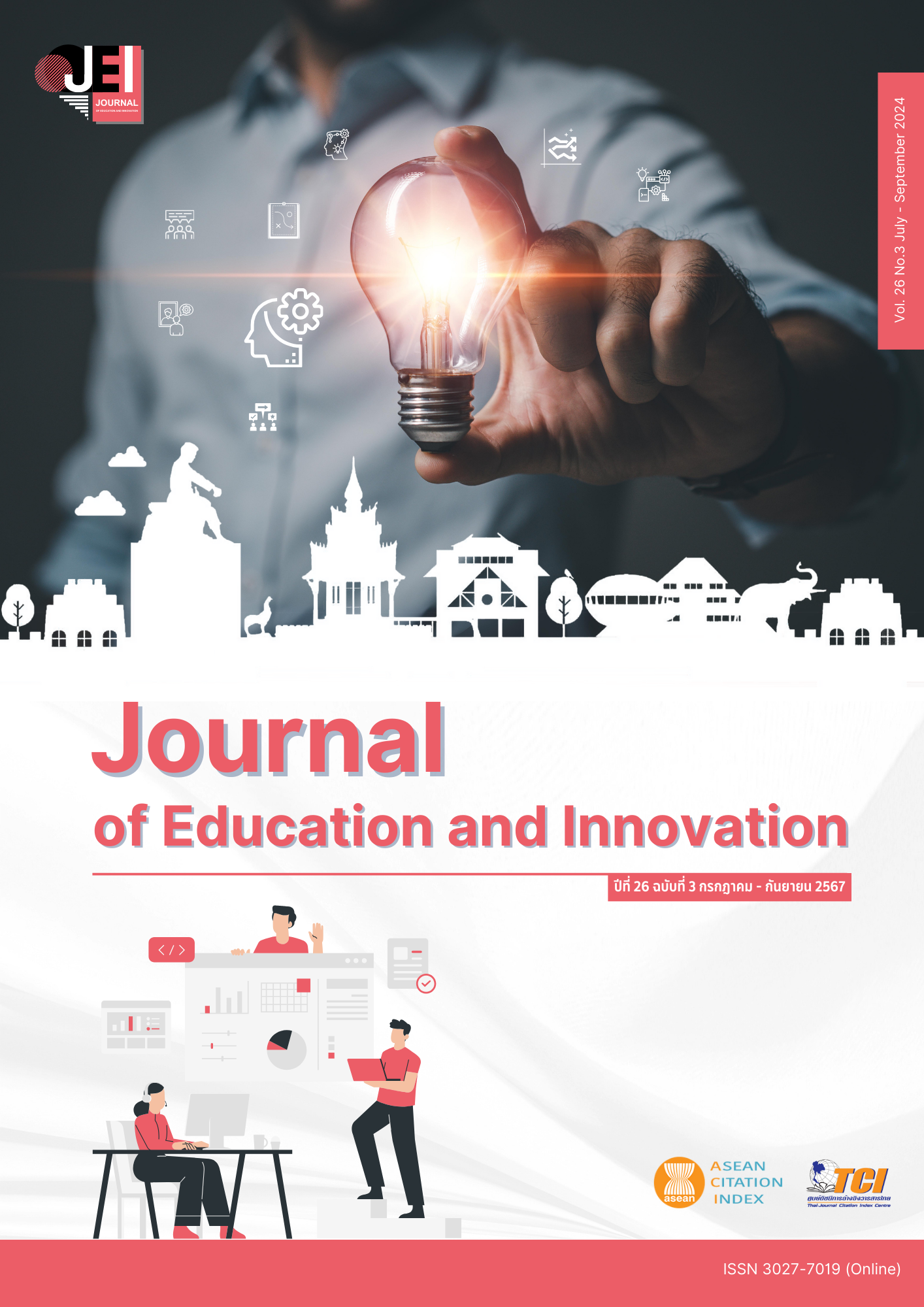USING LANGUAGE EXPERIENCE APPROACH THROUGH DIGITAL MEDIA TO PROMOTE ENGLISH READING AND WRITING ABILITIES AND MEDIA LITERACY OF GRADE 12 STUDENTS
Main Article Content
Abstract
The objectives of this research were to 1) create and find the quality of the lesson plans using language experience approach through digital media to promote English reading and writing abilities and media literacy, 2) compare English reading abilities, 3) compare English writing abilities before and after studying with language experience approach through digital media, and 4) examine media literacy of students after studying with language experience approach through digital media. The target group was 26 students in Doi Tao Wittayakom School, Chiang Mai, selected by cluster random sampling. The research instruments were an evaluation form of lesson plans quality, test for reading abilities (20 items), test for writing abilities (2 items), and form of media literacy scale (25 items). The data were analyzed by using means, standard deviations, percentages and quality of English reading ability based on the criteria. The results showed that: 1) there were 7 lesson plans (3 hours per each, altogether 21 hours) using language experience approach through digital media to promote English reading and writing abilities and media literacy which had very good quality; 2) the English reading abilities; 3) the English writing abilities after studying was higher than before studying with language experience approach through digital media; and 4) the media literacy of students after studying with language experience approach through digital media had high level.
Article Details

This work is licensed under a Creative Commons Attribution-NonCommercial-NoDerivatives 4.0 International License.
The owner of the article does not copy or violate any of its copyright. If any copyright infringement occurs or prosecution, in any case, the Editorial Board is not involved in all the rights to the owner of the article to be performed.
References
Dechakup, P., & Yindeesuk, P. (2020). Collaborative active learning and PLC. Bangkok: Chulalongkorn University Press.
English Language Institute Office of the Basic Education Commission. (2016). Manual for teaching English Based on the common European framework of reference languages (CEFR) for secondary. Bangkok: Ministry of Education.
Intasingh, S. (2020). School curriculum administration. Chiang Mai: Faculty of Science, Chiang Mai University.
Milner, J. M. (2008). The language experience approach in second grade reading. USA: Sterva Nevada College.
Ministry of Education. (2008). Basic Education Core Curriculum. Bangkok: Ministry of Education.
Nasongkhla, J. (2018). Digital learning design. Bangkok: Chulalongkorn University Press.
Piaget, D. M. (1979). Descriptive and Inferential Statistical Topics. Dubuque: Kendall Hunt Publishing company.
Prachanban, P., & Kornpuang, A. (2015). The research and development of the measurement instruments of the media literacy skills in the 21st century for secondary students. Phitsanulok: Naresuan University.
Stauffer, R. G. (1980). The Language Experience Approach to the Teaching Reading. New York: Harper and Row Publishing.
Tayjasanant, C. (2021). Psychology for English language learners and teachers. Bangkok: Chulalongkorn University Press.
Tubted, R. (2011). Research and development of English reading teaching model based on language experience approach to develop third grade students’ reading comprehension ability (Doctoral dissertation). Bangkok: Chulalongkorn University.
Wurr, A. J. (2002). Language experience approach revisited: The use of personal narratives in adult L2 literacy instruction. The Reading Matrix, 2(1).


